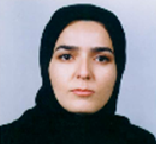Hierarchical Schematicity in the Configuration of Sorani Kurdish Exocentric Compounds based on Booij’s Construction Morphology
This study attempted to explore the hierarchical schematic system governing the formation of Sorani Kurdish exocentric nominal compounds to achieve their general meaning making model via the application of analytical-descriptive method based on Booij's (2010) construction morphology framework. In the first phase of data collection, 1400 nominal compounds of Kurdish-Persian Dictionary of Hahnbane Burina (Sharafkandi, 1991) and Persian-Kurdish Dictionary of university of Kurdistan (2014). Data analysis phase initiated with the identification of exocentric nominal compounds of the corpus by making use of Scalise and Goyura's (2011) hyponymy test beside the judgement of two author of the study as native speakers of Sorani Kurdish. Finally, 842 instantiations or 60% were found to be exocentric. The results showed that Sorani Kurdish exocentric compounds dominated by one macro-schema, 12 second-order schemas, and 54 sub-schemas. The results can be counted as a proof for the fact that nominal compounds of this type neither in form nor in semantic specifications are in total agreement with constituting elements. In other words, the rupture of motivation and blockage of the relationship between form and meaning is not a general feature among all exocentric compounds, while instantiations of this type cover a wide range of words with less dark meaning to absolutely dark lexical items. Accordingly, some of the nominal compounds did not benefit from formal head while the output constructions fall under “noun” as their parts of speech; thus it is the schemas that are effective both in determination of formal and semantic characteristics manifested in the output.
-
Explanation of Deleted Internal Argument in Persian Verb Phrase Based on Dynamic Approach of Phase Theory
Elahe Vasegh, Razieh Beyraghdar*, , Mazdak Anushe
Language Related Research, -
Redefinition of Compounding in Sorani Kurdish Morphology: An Investigation on Nominal Compounds in Construction Morphology Approach
, *, Razieh Mahdi-Beyraghdar, Seyyed Mohammad Hosseinimaasoum
Journal of Western Iranian Languages and Dialects, -
The Application of Logos in Representation of The Advertisements of Islamic Republic of Iran Sport Federations Semiotics Perspective
Ali Karimi Firouz Jaie *,
Journal of Applied Research of Sport Management,



